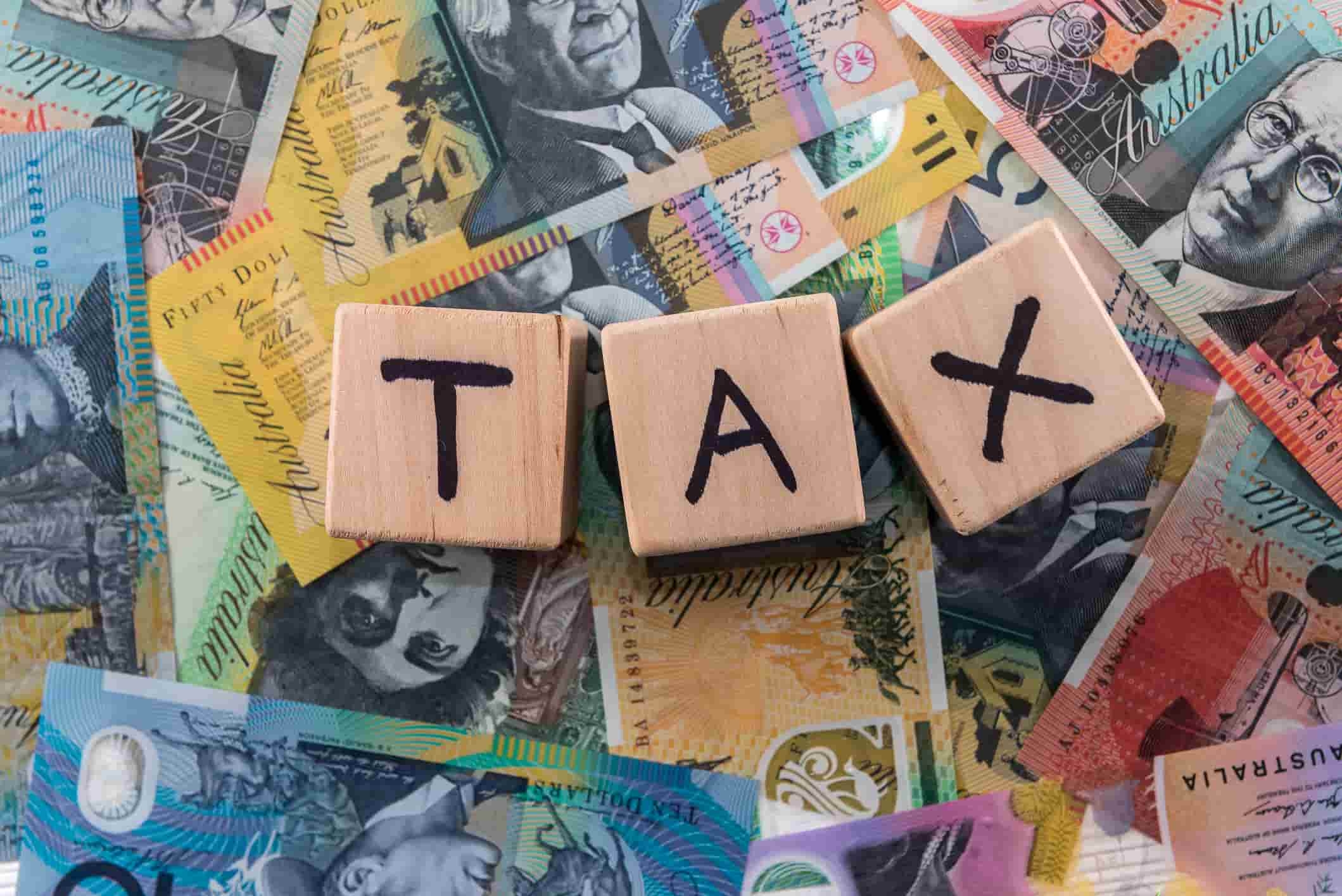Claiming tax deductions and expenses in Australia
Tax credits and deductions can save you a lot of money if you know how they work, what they are, and how to take advantage of them.
After all, you put in a lot of effort in earning your money. So, why pay more tax than necessary?
Knowing what tax deductions you can claim will help you avoid paying more tax than you have to, and this will have a significant impact on your bank account.
We have prepared a quick cheat sheet to help you get tax reclaim in Australia.
So, what are tax deductions?
A tax deduction reduces your taxable income, lowering your tax liability.
You subtract your applicable tax deductions from your income and this reduces your taxable income.
You can claim deductions for certain expenses when filing your tax return. The majority are work-related expenses. These are the expenses you incur in order to earn your employment income.
To be eligible for work-related deductions, you must meet the following requirements:
- you must have receipts/invoices to back up your claim
- you should have spent the money
- you must have not been compensated for the cost
- the expense must be relevant to your job
If you are claiming an expense for both work and personal purposes, you can only claim the work portion of the cost.
More people are working from home since the start of the pandemic, which means that they can claim certain home office expenses as tax deductions.
Interest on investments, rental property fees, various insurance policies, and charitable donations are all examples of deductible expenses.
What is a tax credit?
A tax credit is a sum of money that taxpayers can deduct directly from the taxes they owe.
Tax credits, unlike deductions, which reduce the amount of taxable income, reduce the actual amount of tax due.
A tax credit can lower your tax bill much more than a tax deduction.

Will I get back all the money I spent if I bought something that is tax-deductible?
The answer is a resounding nay!
You won’t get everything you spent on tax-deductible services/items, but you might get a part of it.
The amount you spent reduces your taxable income. This means you pay less tax on your whole income and therefore, get a bigger refund.
Our average Australian tax refund is AU$2600
What types of deductions can you claim in Australia?
First of all, you should know that the deductions you can claim are the same for both residents and non-residents.
Here are some of the frequently claimed tax-deductible expenses in Australia (but keep in mind that this list is not exhaustive):
Work-related expenses
Some of these deductions will be clear, while others may be a little peculiar.
When it comes to work-related expenses, the general rule is that if you buy something to help you run your business or earn your money, you can deduct it.
Work expenses reimbursed by your employer are not deductible.
One of the most important things to remember is that you must keep your payment documents safe. When tax time comes, this will make your life much easier.
Work-related expenses could be:
-
automobile and vehicle expenses
-
travel costs
-
expenses for clothing, laundry, and dry cleaning
-
self-education costs
We will discuss them deeper later.
Other work-related expenses
Other expenses related to your work or earning your income that you incur may be deductible as well. You can claim them on your tax return as “Other work-related expenses”.
Some of them could be:
-
working from home costs
-
equipment, tools, and other assets
-
union dues, association membership subscriptions, and bargaining agent fees
-
and more.
Automobile and vehicle expenses
If you use your automobile for work (this must be your own car), you can deduct work-related travel expenses that are directly tied to the business costs of using your car to do your job.
Because routine trips between home and work are private, you cannot claim the cost of those trips, even if:
-
On your way to work, you perform basic activities such as picking up the mail
-
You work overtime and no public transport is available to use to get you home
Expenses for clothing, laundry, and dry cleaning
Do you need to wear a uniform (for example with your company’s logo)? Or maybe a suit?
You can deduct the expenditures for buying, renting, or repairing clothing (and footwear) if it fits into one of the following categories:
-
protective clothing
-
occupation-specific clothing
-
ompulsory uniforms
-
uniforms that are non-compulsory but have been registered with AusIndustry by your employer
You may be required to provide written evidence demonstrating:
-
you bought the clothing or uniform
-
money you spent
-
your cleaning costs
You cannot claim a deduction if your employer does any of the following:
-
buys, fixes, replaces, or cleans your work clothes
-
reimburses you for work clothing expenses
You also cannot deduct the cost of purchasing, renting, repairing, or cleaning standard clothes for work, such as black pants.
On the other hand, you can make a claim for clothing and footwear that you wear to protect yourself from disease or injury. If you work outside, you can, for example, claim sun protection.

Working from home expenses
If you work from home or at least carry part of your responsibilities from home, some portion of the home office costs can be claimed as a tax deduction.
However, you can only claim the expenditures for the hours you exclusively used in an area of your home during work hours.
If you work from your house, you may be entitled to reimbursement for expenses such as computers, phones, and other electronic devices required for your job.
You can also deduct the operating costs of any electricals.
In general, you can claim up to $300 for home office equipment, such as computers, or a drop in value for things costing $300 or more.
You can also deduct your phone bill if you use it for work-related expenses.
Our average Australian tax refund is AU$2600
Use of mobile phone
If you use your phone for both professional and personal purposes, you must calculate the percentage that is fairly related to your work use.
Of course, again, you need to have records to prove your claims, and you cannot claim phone costs that have been already reimbursed by your employer.
If you have a phone plan with an itemized bill, you must calculate your percentage of work use over that four-week period. Then, you may then apply it to the entire year.
Job-specific tax deductions in Australia
Do you work as a nurse, a teacher, or in the hospitality industry?
There are specific tax-deductible expenses for each job mentioned below:
-
medical professionals (including nurses and midwives)
-
care for elderly
-
tradespeople and sales professionals
-
customer service
-
staff in the hospitality industry
-
engineers
-
laborers
-
farmers and farm hands
-
cook and chefs
-
retail staff
-
teachers
-
cabin crew
-
office admins
-
factory workers
-
wait staff
-
cleaners
-
and more.

Other tax-deductible expenses in Australia
Union dues, association membership subscriptions, and bargaining agent fees (trade union fees)
If you are part of a trade union or a member of an association, your fees can be deducted.
Financial publications and research services are also claimable if you are an investor.
Subscriptions to magazines, associated with your work can also be claimed on your return in certain cases.
Consider prepaying next year's fees before June 30 and claim your deductions now.
Investments and interest
Expenses incurred while generating dividends, interest оr other types of investment income might be deducted as well.
Account keeping costs for investment purposes can be claimed as interest income expenses.
For shares and dividends, you can deduct interest paid for borrowed funds used to purchase shares.
If you borrowed money for both private and income-producing purposes, you must divide it equally between the two.
Donations and gifts
Gifts or donations can only be claimed if the organization to which you donated is a deductible gift recipient (DGRs).
The amount that can be claimed varies according to the type of gift.
For money, it must be at least $2. The criteria for property differ depending on the type and value.
The deduction can be claimed on your tax return for the tax year in which the gift is made.
To prove it, you will need a receipt that should indicate whether or not you are eligible to claim it.
If you made a donation exceeding $2 via the internet or phone, your web receipt or credit card statement can be used to justify it.
If you donated through a third party, such as a bank or a retail establishment, the receipt you received from them is also adequate.
If you donated through 'workplace-giving,' the amount must be shown on your payment summary.
To claim a tax deduction for a gift, four key criteria must be met:
-
Some DGRs have various conditions, and any relevant condition must be met. Therefore it's always a good idea to double-check the conditions!
-
It must be money or property, and financial assets should be included
-
Whatever you're giving as a present must truly be a gift
-
The donation must be made to a DGR
Our average Australian tax refund is AU$2600
Income protection insurance
You can also deduct insurance premiums paid to protect yourself against income loss.
However, don't make the mistake of including life insurance, critical care insurance, or trauma insurance because these aren't deductible. Policies purchased with superannuation contributions are also not permitted.

Expenses for self-education
If your study is directly linked to your work, you can claim self-education expenses.
Respectively, self-education expenses that do not have a significant relation to your current employment cannot be claimed.
If an expense is partially for self-education and partly for other purposes, you can only deduct the portion that is for education.
The course you complete should result in a formal qualification that meets the following requirements:
-
It should improve the skills and knowledge necessary for your present employment
-
result in, or is expected to result in, an increase in your income
You can deduct the following expenses related to self-education:
-
travel to and from an educational facility
-
academic journals and textbooks
-
home office running expenses and fares
-
accommodation and food (if you are away from home)
-
consumables for computers
-
equipment maintenance/repairs
-
interest
-
parking fees
-
student union fees
-
postage, stationery
-
amenities fees and student services
-
phone calls
-
etc.
Equipment, tools, and other assets
You can claim a deduction for some or all of the cost of tools and equipment that you need for employment.
And the price of an asset will affect the type of deduction that you can claim:
-
you can claim an instant deduction for things that cost $300 or less and are not part of a set
-
you can deduct the drop in value of things that cost more than $300 or are part of a set
-
if necessary, you can also reimburse the expense of repairing and insuring tools and equipment
Fees for tax preparation and commute to visit your accountant
You can claim the fees this year if you have worked with a tax expert in the previous year. You can also claim your travel expenses to and from these consultations.
Who can help me claim my tax expenses?
A tax agent, like us, can help you to claim your tax expenses. When you file your Australian tax return with Taxback, you can rest assured that every applicable tax credit and expense will be applied to your tax return.
When claiming tax deductions, it’s always important to keep your receipts and payment documents safe. Almost everything you spend money on that’s related to earning your income can be deducted either immediately or over time.
You should be able to show proof of purchase, use of the item at work, and that the expense is not personal or domestic in nature.
Apply with us today and we’ll take care of your Australian tax return and ensure you are claiming all deductions and expenses you are entitled to!
Our average Australian tax refund is AU$2600
Why choose Taxback?
Here's why:
-
We have 20+ years of experience in international tax and we filed over 1 million tax returns to date! We will ensure you avail of all the applicable deductions and reliefs you are entitled to and will keep you compliant with the ATO
-
We'll transfer your maximum legal Australian tax refund straight to your bank account, anywhere in the world
-
It's a convenient online service. We do the work, you get the cash!
-
Got tax questions? Our Live Chat team are on hand 24/7 to answer you
-
Taxback is ISO 9001 certified - This is the most widely recognized quality management system standard in the world




